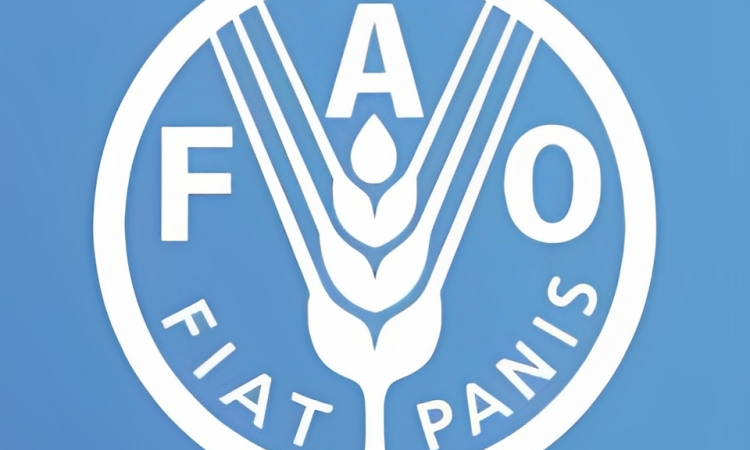
Achieving food security for all is at the heart of FAO’s efforts – to make sure people have regular access to enough high-quality food to lead active, healthy lives. Our three main goals are: the eradication of hunger, food insecurity and malnutrition; the elimination of poverty and the driving forward of economic and social progress for all; and, the sustainable management and utilization of natural resources, including land, water, air, climate and genetic resources for the benefit of present and future generations.
- Job Type: Full Time
- Qualification: MBA/MSc/MA
- Experience: 5 years
- Location: Borno
- City: Maiduguri
- Job Field: NGO/Non-Profit , Project Management
Organizational Setting
- The Food and Agriculture Organization (FAO) of the United Nations is seeking a qualified Nutrition Specialist to support its emergency nutrition interventions in northeast and northwest Nigeria.
- These regions have been severely impacted by conflict, displacement, and food insecurity, leading to significant nutritional challenges.
- The Nutrition Specialist will play a pivotal role in designing, implementing, and monitoring nutrition programs to address acute malnutrition and enhance the resilience of vulnerable populations.
Key Results
- To provide leadership and technical expertise in the planning, implementation, and monitoring of emergency nutrition programs to improve the nutritional status of vulnerable populations in emergency hotspot locations.
Reporting Lines
- The job holders report to the Emergency Programme Specialist, Coordinator and (OiC) Head of Sub-Office in Maiduguri.
Technical Focus
- Overall skills will centre around ensuring optimal nutrition practices and outcomes
- Nutrition in emergencies – treatment and prevention of acute malnutrition in emergencies
- Nutrition sensitive and nutrition specific interventions and activities
- Developing and managing nutrition programs and initiatives.
- Developing and implementing Tom-Brown to malnourished individuals especially children, pregnant and lactating mothers
Tasks and responsibilities
Program Design and Implementation:
- Develop and implement emergency nutrition programs in alignment with FAO guidelines and standards.
- Conduct needs assessments to identify gaps and prioritize interventions.
- Coordinate with local authorities, NGOs, and other stakeholders to ensure integrated program delivery.
Monitoring and Evaluation:
- Establish and manage robust monitoring and evaluation systems to track program progress and impact.
- Conduct regular field visits to monitor the quality of program implementation.
- Compile and analyse data to inform program adjustments and improvements.
Capacity Building:
- Provide training and technical support to local staff and partners on emergency nutrition best practices.
- Facilitate knowledge sharing and learning among program teams.
Reporting and Documentation:
- Prepare timely and accurate reports on program activities, outcomes, and challenges.
- Document best practices, lessons learned, and success stories to inform future programming.
Coordination and Representation:
- Represent FAO in relevant coordination forums, such as nutrition cluster meetings.
- Foster strong partnerships with government agencies, donors, and other stakeholders.
- Conduct other responsibilities which may be assigned by the supervisor
CANDIDATES WILL BE ASSESSED AGAINST THE FOLLOWING
Minimum Requirements
- Advanced university degree in Nutrition, Public Health, or any other related fields.
- A minimum of 5 years of professional experience in emergency nutrition programming, preferably in conflict-affected settings.
- Working knowledge of English, and other local languages is required.
FAO Core Competencies
- Results Focus
- Teamwork
- Communication
- Building Effective Relationships
- Knowledge Sharing and Continuous Improvement
Technical/Functional Skills
- Demonstrated experience in program design, implementation, and monitoring in humanitarian contexts.
- Experience working with UN agencies, INGOs, or government bodies in similar roles.
- Proven ability to manage and coordinate complex programs with multiple stakeholders.
- Experience in preventive services for acute malnutrition at community level using community participatory approach
- Knowledge of local solutions to prevent and reduce child wasting through food-based approach is an added advantage
- In-depth knowledge of international and national emergency nutrition principles, standards, and protocols and their applications
- Strong analytical skills and ability to conduct nutritional assessments
- Proficiency in project management cycle, including planning, implementation, and monitoring
- Excellent communication and interpersonal skills for effective coordination and capacity building
- Proficiency in data analysis tools and software